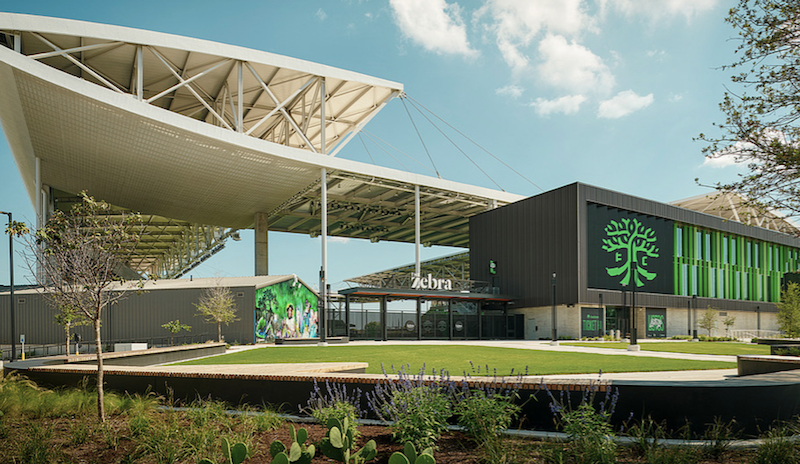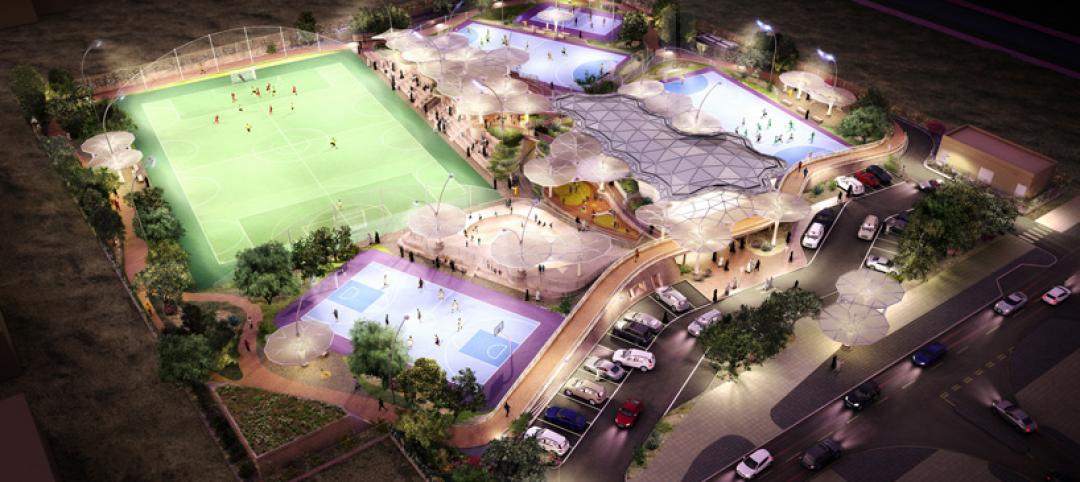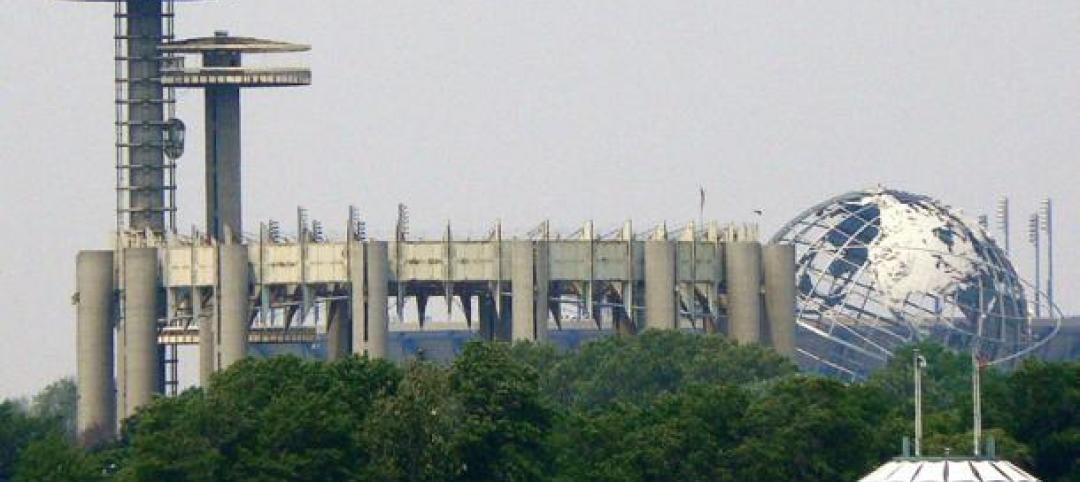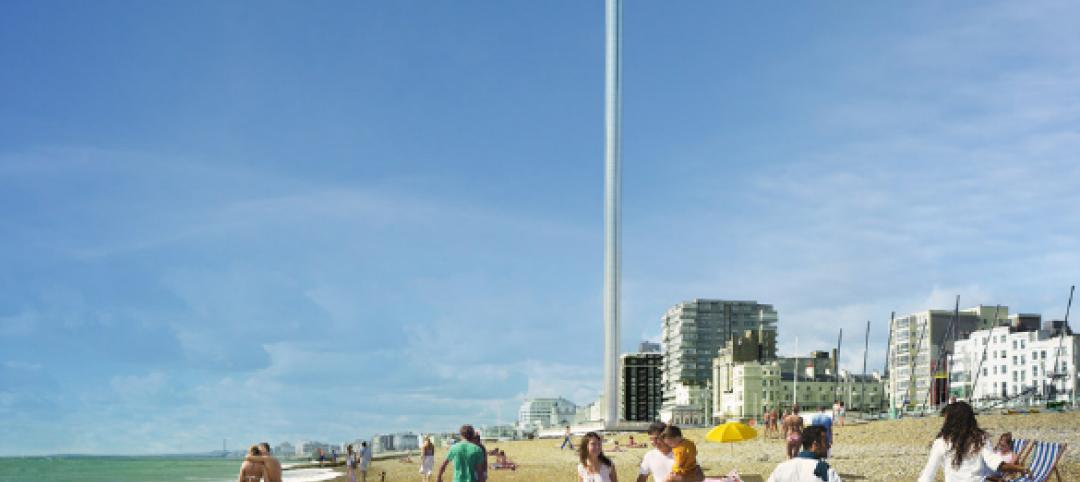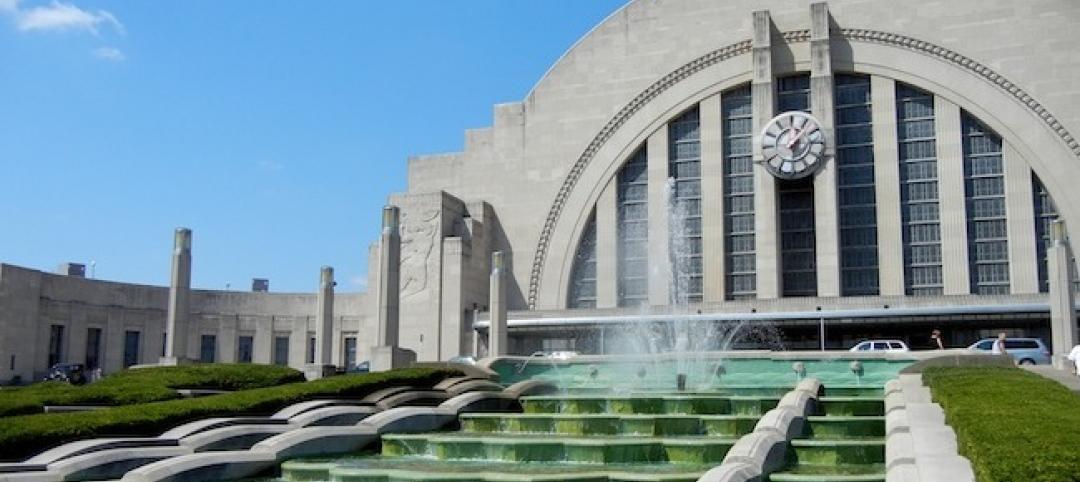Q2 Stadium, a new 20,000-seat stadium for Austin FC, has completed construction. The Gensler-designed project capitalizes on its natural landscape, the city’s cultural heritage, and its tech-forward growth.
The project features one of the largest roofs on a soccer-specific stadium, which will cover every seat, protecting fans from rain and sun. The canopy enclosure features a combination of customized curved metal panel systems on the bullnose, soffit, and edges; and a single-ply roofing on the top side of the canopy. The stadium is also oriented on its site to pull in breezes aided by open corners, an open-air concourse, and breathable mesh fabric seats.
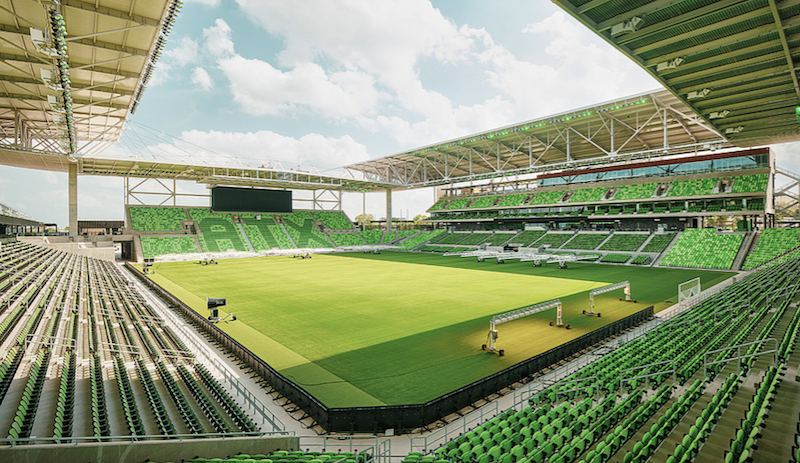
Open concourses and standing areas allow fans to move around and socialize or visit local food vendors. VIP guests can access hospitality-inspired air-conditioned clubs and suites. Multiple outdoor spaces surround Q2 Stadium, including an outdoor amphitheater and a stage for live music. Outdoor spaces are open to the public on non-game days and can host farmer’s markets and concerts.

Q2 Stadium is the first MLS stadium to use Whole Building Life Cycle Analysis (WBLCA) to environmentally optimize the structure and enclosure and reduce embodied carbon. The WBLCA illustrated the environment savings achieved through the use of a cable system to support portions of the roof, as well as optimizations to the concrete mix designs.
In addition to Gensler’s design, the project was delivered with Walter P Moore’s multi-discipline service approach, which includes structural engineering, enclosure engineering, water proofing consulting, construction engineering, and whole building life cycle assessment.
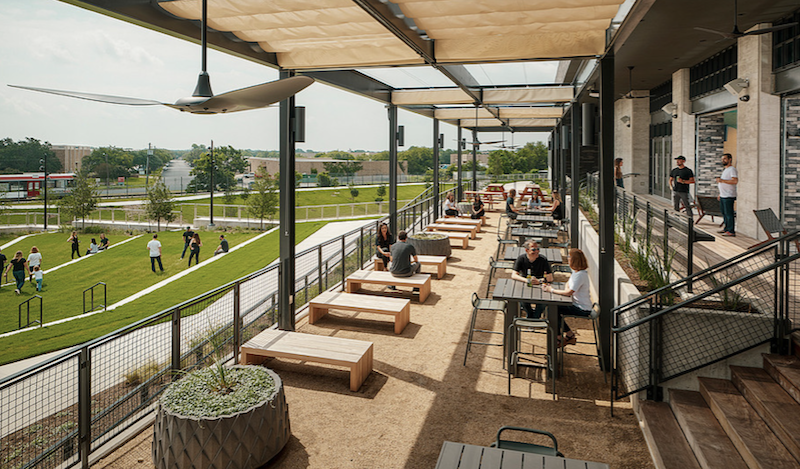
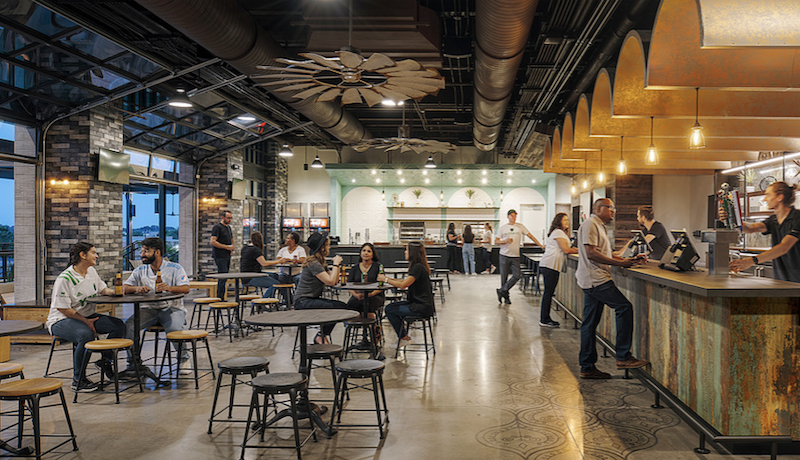
Related Stories
| Jul 2, 2014
Grimshaw's 'kit of parts' design scheme selected for Qatar sports facilities program
The series of projects, called the Al Farjan Recreational Sports Facilities, have been designed in such a way that the same basic design can be adapted to the specific requirements of each site.
| Jul 1, 2014
Sochi's 'kinetic façade' may steal the show at the Winter Olympics
The temporary pavilion for Russian telecom operator MegaFon will be wrapped with a massive digital "pin screen" that will morph into the shape of any face.
| Jun 30, 2014
Philip Johnson’s iconic World's Fair 'Tent of Tomorrow' to receive much needed restoration funding
A neglected Queens landmark that once reflected the "excitement and hopefulness" at the beginning of the Space Age may soon be restored.
| Jun 30, 2014
Research finds continued growth of design-build throughout United States
New research findings indicate that for the first time more than half of projects above $10 million are being completed through design-build project delivery.
| Jun 26, 2014
Plans for Britain’s newest landmark brings in international cooperation
Designers of the London Eye will team up with companies from France, the Netherlands and the United States to construct i360 Brighton, the U.K.'s newest observation tower.
| Jun 25, 2014
Frank Lloyd Wright’s Spring House, Cincinnati’s Union Terminal among 11 Most Endangered Historic Places for 2014
The National Trust for Historic Preservation released its annual list of 11 Most Endangered Historical Sites in the United States for 2014.
| Jun 20, 2014
Sterling Bay pulled on board for Chicago Old Main Post Office project
Sterling Bay Cos. and Bill Davies' International Property Developers North America partner up for a $500 million restoration of Chicago's Old Main Post Office
| Jun 18, 2014
Six World Cup stadiums have achieved LEED certification
In conjunction with the 2014 FIFA World Cup in Brazil, the U.S. Green Building Council (USGBC) announced that six World Cup stadiums have achieved LEED certification, including South America’s largest stadium, Maracanã in Rio de Janeiro.
| Jun 18, 2014
Arup uses 3D printing to fabricate one-of-a-kind structural steel components
The firm's research shows that 3D printing has the potential to reduce costs, cut waste, and slash the carbon footprint of the construction sector.
| Jun 16, 2014
6 U.S. cities at the forefront of innovation districts
A new Brookings Institution study records the emergence of “competitive places that are also cool spaces.”


